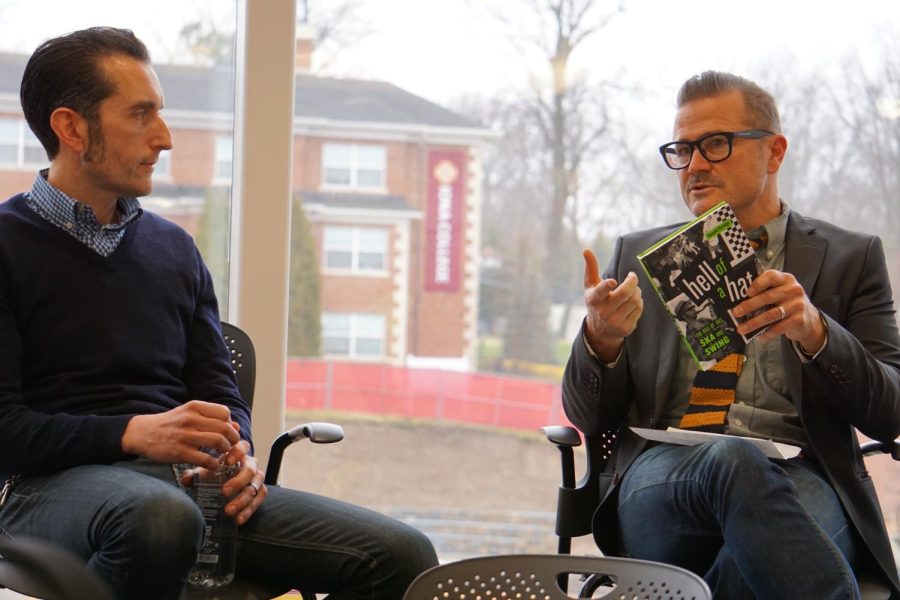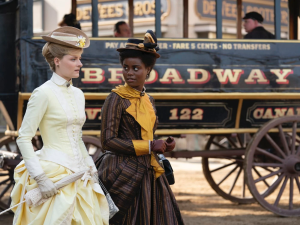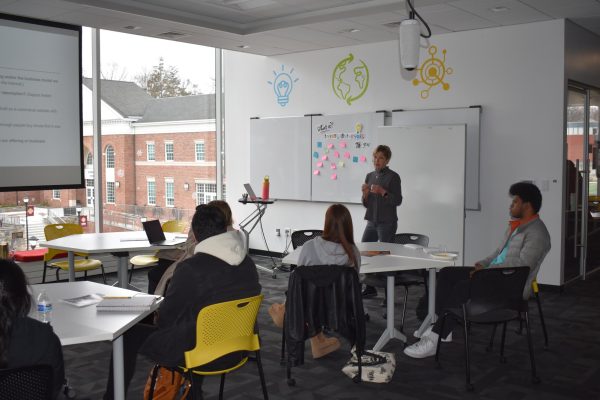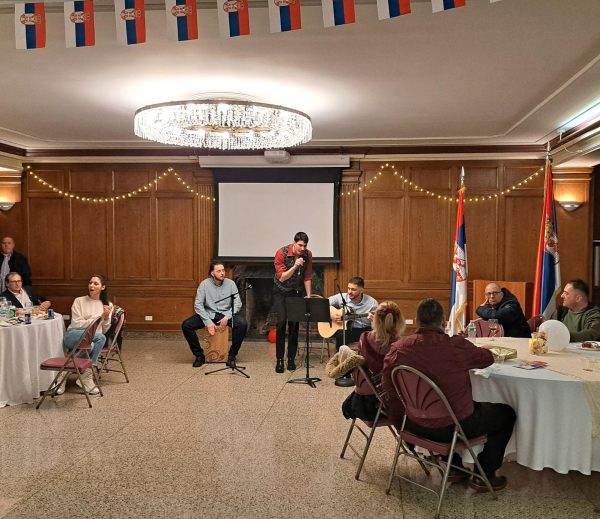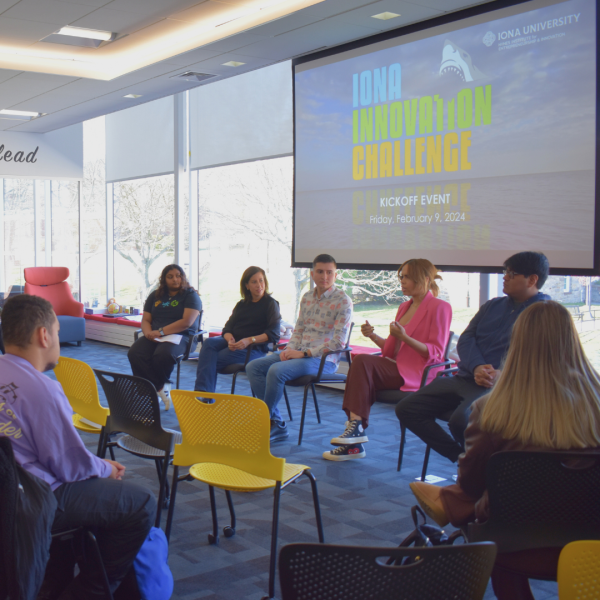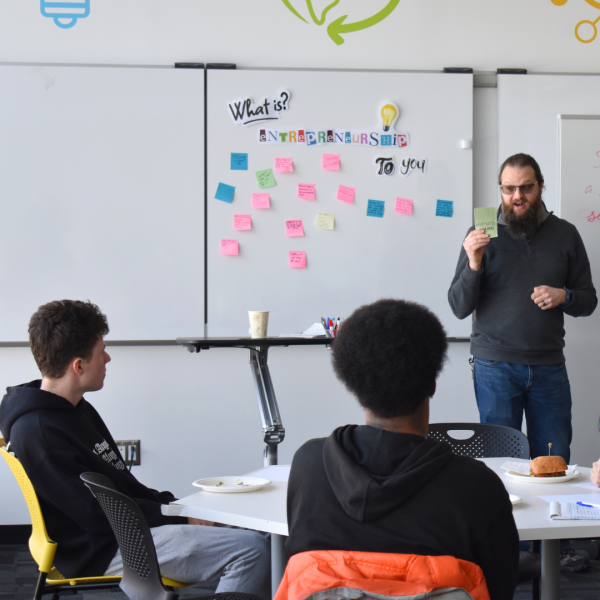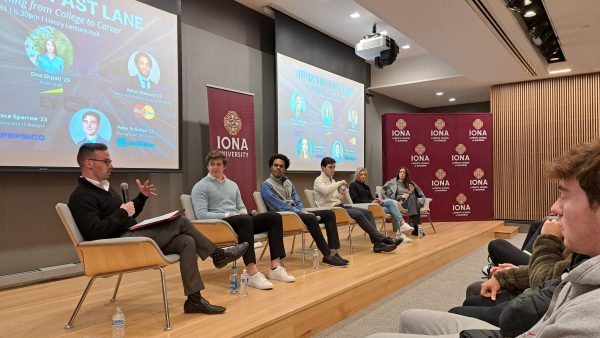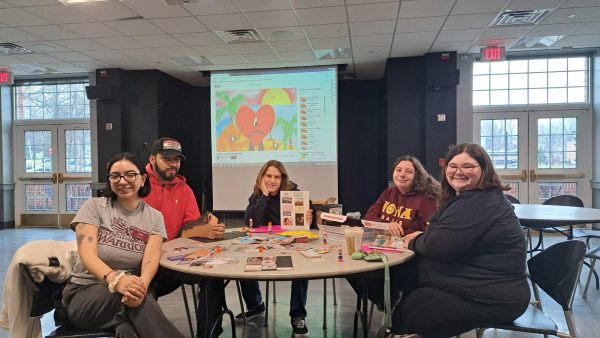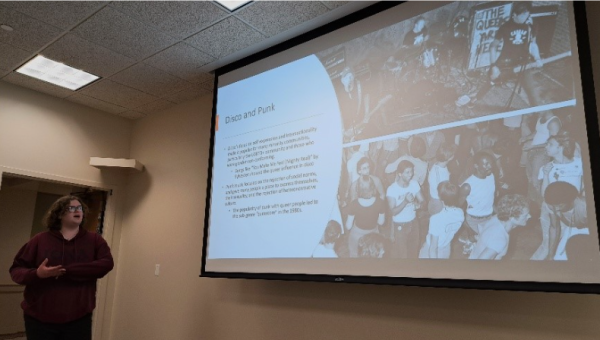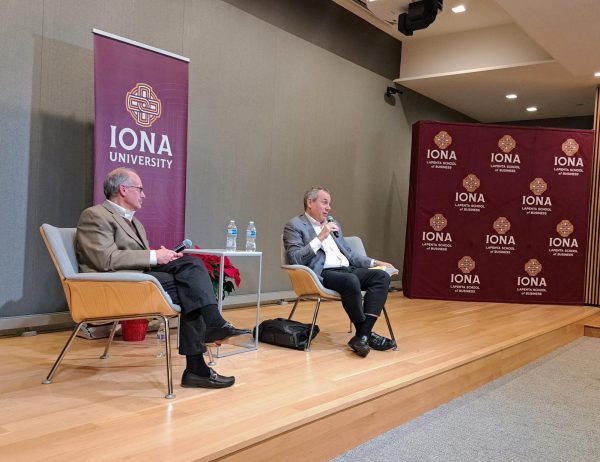Managing editor at Genius Kenneth Partridge gives talk
Kenneth Partridge discusses how a liberal arts education will help students in their future endeavors.
March 31, 2022
Professor James Stillwaggon hosted an interactive panel featuring author Kenneth Partridge, on March 24, where students got the chance to make connections between classes and a career.
As a liberal arts college, Iona students are required to take critical thinking classes. Some have asked why they required to take philosophy, English, and sociology classes if they are a business major, unable to find any connections with their careers. However, Stillwaggon explained the significance of these classes.
“The panel was designed to provide insight into professional identities,” Stillwaggon said. “Helping students to map out their journey, teaching them how a liberal arts major can prepare them for life, both professional and otherwise”
Partridge was honored to speak and described his experience at Boston University. Despite graduating with a degree in economics, he found success in writing for music. Pushing his career by becoming managing editor for a website called Genius, contributing to the idea of finding a job you enjoy doing, and you’ll never have to work a day in your life mantra.
“I do all sorts of things for the site,” said Partridge. “There was this thing we had for a long time; a Spotify partnership thing called ‘Behind the Lyrics.’ A song would play, and we’d sort of tell the story of the song as it was playing. I worked on that for years and years. It was just discontinued this past fall. My job has changed over the last few months, but I guess you can call me a jack of all trades.”
Most recently Partridge has become an author of “Hell of a Hat: The Rise of ’90s Ska and Swing.” A majority of the book speaks of ideas of the late 90s, third-wave ska, humanity, history, expression and rhythm. Partridge informed the audience that the story is a tribute to his younger self.
At the panel, he also told emotional stories of the ups and downs of his changing career. One such story describes his last year at school and how he found more passion in writing, wishing he could go back and change his mind.
“I wish I knew then what I know now as I probably would have changed my mind, but I guess things happen for a reason,” said Partridge.
Another story was about how most of the things he worked on no longer exist. Work can disappear in the ether we call the Internet, which is why he wanted to make something permanent with his book. In the end, all students were exposed to new knowledge that will help them in their future careers.
Stillwaggon notes that there will be several more of these types of events.
“He’s the first of a few speakers that we’re going to have come here,” said Stillwaggon. “It’s important to talk about the relationship between a liberal arts education and some of the practices that surround it and a professional identity.”




